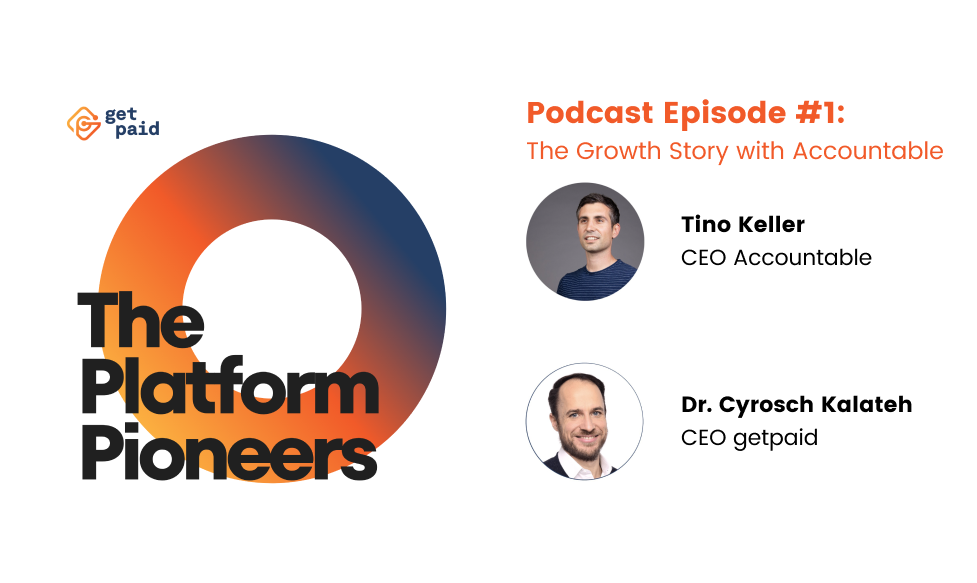5 key learnings from scaling Accountable to +20k users

In our first episode of The Platform Pioneers podcast, Tino Keller, co-founder of Accountable, shares his valuable experience and knowledge on building and scaling a successful platform business. Tino discusses key strategies such as offering personalized solutions for customers, creating a supportive ecosystem, leveraging partnerships to drive platform adoption, and focusing on a specific niche for better traction. These key learnings are not only applicable to the fintech industry but can also provide valuable insights for platform companies across various sectors.
Key Learning #1: Focus on a specific niche for more traction
Summary: Tino explained how Accountable initially focused on catering to expat freelancers and self-employed software developers as its niche market. By focusing on this specific segment, they were able to develop tailored solutions and go-to-market strategies that addressed the unique challenges faced by these users. This targeted approach enabled Accountable to differentiate itself from competitors and gain better traction within its niche.
Implication: Platform businesses should consider focusing on a specific niche market to achieve better traction and differentiation. By targeting a particular segment, platforms can develop tailored solutions that cater to the unique needs and challenges faced by users within that niche. For example, a fitness platform could concentrate on providing specialized services and content for a specific group, such as seniors or new mothers, offering a more targeted and relevant experience. Similarly, an e-commerce platform could specialize in a niche product category, like eco-friendly or locally-made goods. By adopting this targeted approach, platforms can differentiate themselves and establish a strong presence within their niche.
Key Learning #2: Create a supportive ecosystem for customers
Summary: Tino emphasized the importance of creating a supportive ecosystem for customers that extends beyond the platform's core offerings. This can include integrating third-party services, providing educational resources, and offering additional tools that complement the platform's primary functions. By creating a comprehensive ecosystem, Accountable has been able to provide an all-in-one solution that simplifies the lives of freelancers and self-employed individuals.
Implication: To enhance the customer experience, platform businesses should aim to create a supportive ecosystem that encompasses various complementary services and resources. By integrating third-party services and providing additional tools, platforms can offer a comprehensive solution that meets the diverse needs of their users. For example, a ride-sharing platform might partner with car rental or parking services to provide a seamless transportation experience, while a digital learning platform could integrate with productivity tools or career resources to support students' learning journeys more holistically. This approach can help drive user engagement, loyalty, and long-term platform success.
Key Learning #3: Offer personalized solutions for customers
Summary: Tino Keller shared that Accountable's success has been driven by their commitment to providing personalized tax and financial management solutions for their users. By analyzing customers' individual situations and preferences, Accountable delivers customized recommendations and support that cater to each user's unique needs. This approach has made the platform more appealing to a diverse range of customers, as they feel that their specific requirements are being addressed
Implication: If feasable platform businesses may focus on delivering personalized services and products that cater to the unique needs of their users. By analyzing customer data, preferences, and app behaviors, platforms can create tailored experiences that engage users and build loyalty. For instance, a streaming platform might offer personalized content recommendations based on a user's viewing history, while an e-commerce platform could suggest products based on past purchases and browsing patterns.This personalization strategy can lead to increased customer satisfaction, retention, and long-term growth.
Key Learning #4: Foster a supportive community
Summary: Tino highlighted the importance of building a supportive community around Accountable. He mentioned the various ways the company engages with its users, such as through social media, events, and webinars. By fostering a sense of belonging and providing valuable resources, Accountable has been able to create a loyal user base that contributes to the platform's growth.
Implication: Platform companies should prioritize building and nurturing a supportive community around their platform. This can be achieved through various channels, such as social media, events, and educational resources. By fostering a sense of belonging and providing value to users, platforms can create a loyal user base that contributes to the platform's growth and success. For example, a fitness platform might host workout challenges and share success stories on social media, while an online marketplace could offer webinars and workshops to help sellers grow their businesses. A strong community can also help generate word-of-mouth marketing, attracting new users and further fueling the platform's expansion.
Key Learning #5: Use partnerships to drive platform adoption
Summary: Tino highlighted the role of strategic partnerships in driving platform adoption for Accountable. By collaborating with prominent partners like ING, Fiverr, and N26, Accountable was able to tap into their partner's existing customer base and expand its reach. These partnerships not only increased the platform's visibility but also enhanced its credibility among potential users.
Implication: Platform companies should consider leveraging strategic partnerships to drive platform adoption and expand their reach. By collaborating with established partners in relevant industries, platforms can increase their visibility, credibility, and access to potential users. For example, a health-tech platform could collaborate with well-known healthcare providers to enhance its offerings. Forming strategic alliances can play a crucial role in accelerating platform growth and enhancing long-term success.


